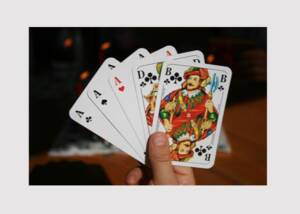Pulp Novels - From Suppression to Rehabilitation
News News blog
The term pulp fiction or pulp novel emerged in the late 19th century and referred to literature that was considered immoral or inferior. It was primarily conservative educators who shaped the debate and warned of the supposedly harmful consequences of such reading for young people.

What exactly is pulp fiction?
Initially, pulp fiction was understood to include works such as trivial knight and robber novels or erotic stories, which were perceived as an attack on the social value system. Later, pulp novels and comics were also included. However, there was never a precise definition. Rather, the term was subject to constant change.
Measures against pulp fiction
In the Weimar Republic, the "Law for the Protection of Youth from Pulp and Dirty Writings" was passed in 1926. It enabled the indexing of corresponding works. During National Socialism, this was followed by rigorous censorship by the Reich Chamber of Literature.
But even in the young Federal Republic of Germany, action was still taken against pulp fiction. In 1953, the Bundestag passed the "Law on the Distribution of Writings Harmful to Young Persons" and established the "Federal Review Board for Writings Harmful to Young Persons". Comics, in particular, now came under fire from critics. There were even public campaigns where "penny dreadfuls" were exchanged for "good books" and subsequently burned.
Pulp fiction today
Today, the term pulp fiction is used more colloquially for books of low literary quality. Often, works of trivial literature are meant. However, the line between "good" and "bad" literature is fluid and depends strongly on individual taste. What was once considered pulp is sometimes rediscovered and rehabilitated decades later.
Conclusion: Pulp fiction or not - tastes differ
The fight against pulp fiction was characterized for many decades by conservative moral concepts and the fear of a decline in values. But social change could not be stopped. Today, the strict separation between entertainment and sophisticated literature has softened. Nevertheless, literary quality remains an important criterion in the evaluation of books - even if tastes differ.










